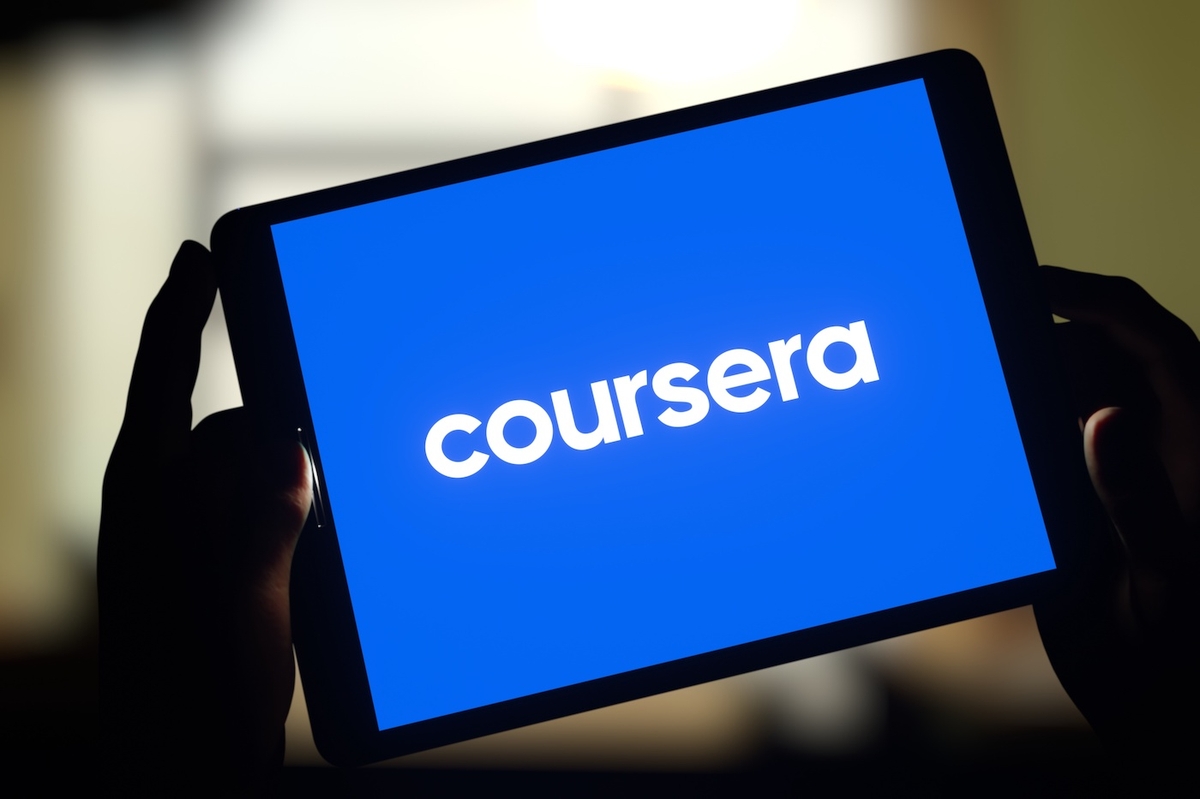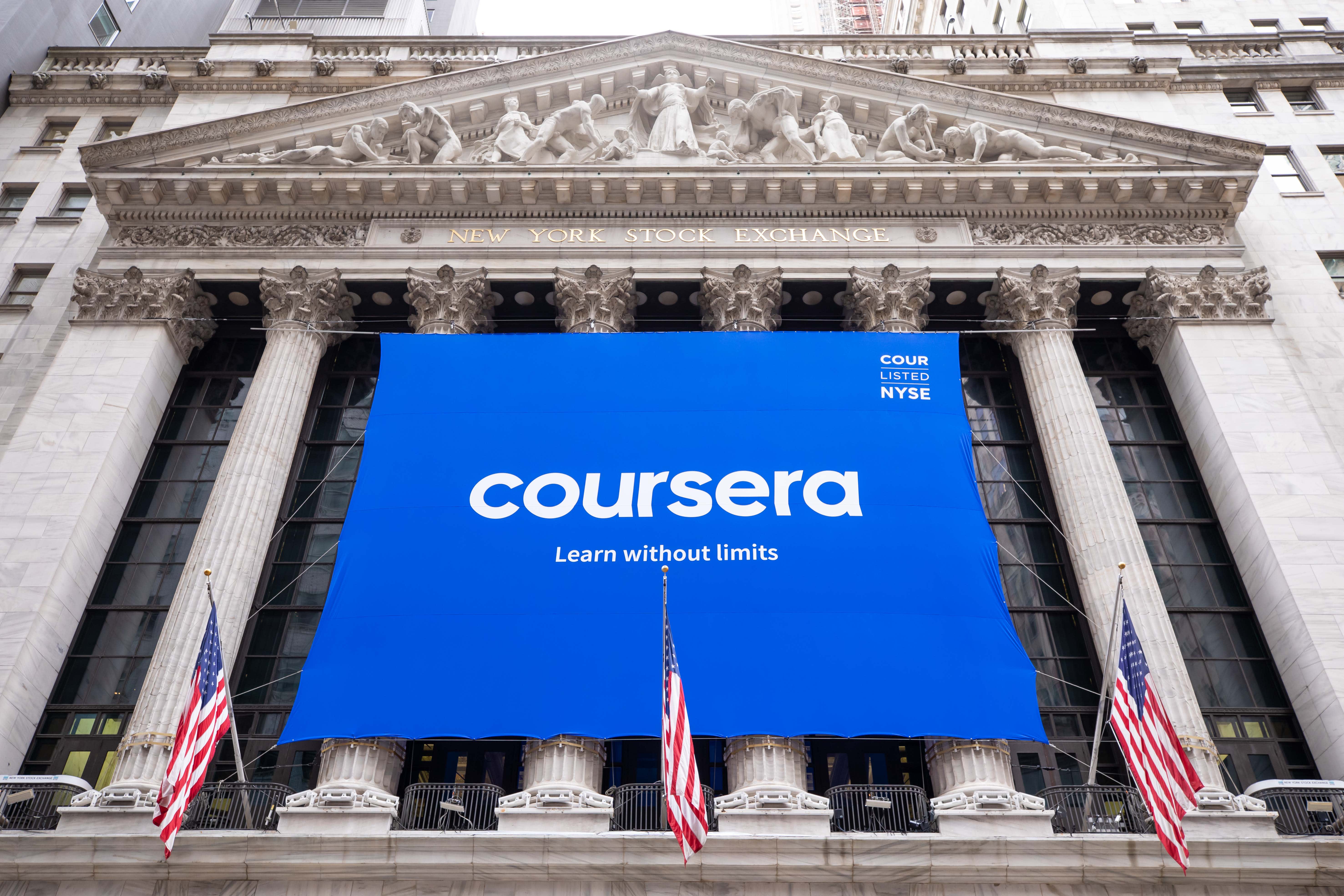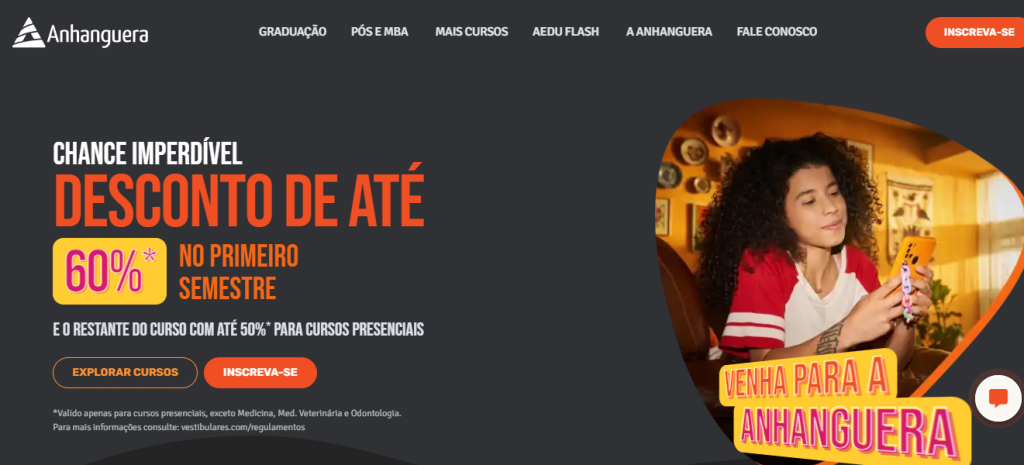
Founding Visionaries
Coursera was founded in 2012 by Stanford University computer science professors Andrew Ng and Daphne Koller. The duo envisioned a platform that could democratize education, making it accessible to anyone, anywhere in the world.
Early Days and Milestones
Coursera initially started with a handful of courses offered by Stanford and other renowned universities. The platform quickly gained traction, attracting millions of learners globally. Over the years, Coursera expanded its partnerships to include not only universities but also corporations and organizations.
Transition to a Global Marketplace
As Coursera grew, it transformed from a university-centric platform to a global marketplace for education. The inclusion of courses from industry leaders, vocational training programs, and specializations marked a significant shift towards catering to a diverse audience with varying educational needs.
Navigating Coursera’s Ecosystem
Course Offerings
Coursera boasts a vast array of courses covering diverse subjects, from humanities to STEM disciplines. Courses are categorized into specializations, professional certificates, and degree programs, allowing learners to choose the educational path that aligns with their goals.
Renowned Instructors and Institutions
One of Coursera’s strengths lies in its partnerships with prestigious universities and organizations. Learners have the opportunity to be taught by world-class instructors and gain insights from experts in their respective fields.
Interactive Learning Experience
Coursera places a strong emphasis on interactive learning. Through a combination of video lectures, quizzes, peer-reviewed assignments, and discussion forums, learners engage actively with the content, fostering a deeper understanding of the subject matter.

Impact on Education and Workforce Development
Democratizing Education
Coursera has played a pivotal role in breaking down socio-economic barriers to education. Learners from all walks of life can access high-quality courses, often at a fraction of the cost of traditional education.
Skill Development for the Modern Workplace
In response to the rapidly evolving job market, Coursera has partnered with industry leaders to offer courses and certifications that align with the skills demanded by employers. This proactive approach bridges the gap between education and employment.
Global Reach and Community Building
The global reach of Coursera has created a diverse and interconnected community of learners. The platform’s forums facilitate knowledge exchange, collaborative problem-solving, and networking opportunities, enhancing the overall learning experience.

Navigating Coursera’s Ecosystem
Course Offerings
Coursera’s extensive catalog encompasses a wide array of courses, catering to diverse interests and educational needs. Here are some noteworthy categories and examples:
1. Data Science and Machine Learning
- “Machine Learning” by Stanford University: Taught by Andrew Ng, this course is a cornerstone in the field, offering a comprehensive introduction to machine learning concepts.
- “Applied Data Science with Python” by the University of Michigan: Focused on practical applications, this specialization equips learners with Python skills for data analysis and visualization.
2. Business and Finance
- “Financial Markets” by Yale University: An exploration of financial markets and the economic principles that drive them, providing insights into investment strategies.
- “Digital Marketing Specialization” by the University of Illinois at Urbana-Champaign: Covering the essentials of digital marketing, this specialization is ideal for professionals aiming to enhance their online marketing skills.

3. Computer Science and Programming
- “Introduction to Computer Science and Programming” by MIT: A foundational course introducing fundamental concepts of computer science and programming using Python.
- “Full Stack Web Development” by the Hong Kong University of Science and Technology: A specialization covering both front-end and back-end development for creating dynamic web applications.
4. Health and Medicine
- “Epidemiology: The Basic Science of Public Health” by the University of North Carolina at Chapel Hill: An exploration of epidemiological principles crucial for understanding public health issues.
- “Medical Neuroscience” by Duke University: Delving into the intricacies of the human nervous system, this course is designed for students pursuing medical or neuroscience-related fields.
5. Humanities and Social Sciences
- “Modern and Contemporary American Poetry” by the University of Pennsylvania: An exploration of American poetry from the 20th and 21st centuries, offering literary insights.
- “Introduction to Psychology” by Yale University: A foundational course providing an overview of key psychological concepts and theories.

6. Technology and Innovation
- “Blockchain Basics” by the University at Buffalo, The State University of New York: A course unraveling the fundamentals of blockchain technology and its applications.
- “AI for Everyone” by deeplearning.ai: Designed for non-technical professionals, this course demystifies artificial intelligence and its impact on various industries.
Navigating Coursera’s Ecosystem: A Glimpse into Pricing Structure
As a premier online learning platform, Coursera has successfully democratized education, allowing learners worldwide to access high-quality courses. Understanding Coursera’s pricing structure is essential for those contemplating enrollment. Let’s delve into the intricacies of Coursera’s pricing model.
1. Free Courses: Access to Knowledge Without Cost
Coursera offers a plethora of courses for free, granting learners access to foundational content across various domains. These free courses are an excellent way for individuals to explore topics, test the waters, and decide if they want to pursue more comprehensive, paid options.
2. Auditing Courses: A Budget-Friendly Option
For learners who wish to engage with course content without pursuing graded assignments or earning a certificate, Coursera’s auditing option provides a cost-effective solution. Auditing allows access to lectures, materials, and discussion forums without the commitment of assessment. This option is ideal for those interested in self-paced learning without formal certification.
3. Course Certificates: Validating Achievement
Learners seeking official recognition for their efforts can opt for Coursera’s paid certificates. This option typically includes graded assignments, quizzes, and a final project, all assessed by instructors. Upon successful completion, learners receive a shareable electronic certificate, a tangible acknowledgment of their accomplishment.
4. Specializations and Professional Certificates: Curated Learning Paths
Coursera offers Specializations and Professional Certificates, which are curated collections of courses designed to provide in-depth knowledge in specific fields. These often come with a single fee covering the entire specialization. The pricing for these programs varies, with some offering a monthly subscription model and others a one-time payment.
5. Coursera Plus: A Subscription for Unlimited Learning
Introduced as a subscription model, Coursera Plus provides unlimited access to over 7,000 courses, specializations, and Professional Certificates. Priced on an annual basis, this subscription is a cost-effective solution for avid learners intending to explore multiple domains and continuously upskill.
6. Degrees: Comprehensive Educational Programs
For learners seeking a more extensive and recognized credential, Coursera offers online degrees in collaboration with top universities and institutions. Degree programs typically have a higher price point and offer a structured curriculum, mentorship, and hands-on projects. Financial aid options may be available for eligible learners.
Coursera’s pricing model is designed to accommodate a diverse range of learners, from those exploring individual courses for free to those committed to obtaining formal certifications and degrees. With options for every budget and learning style, Coursera continues to be a leading force in making quality education accessible to a global audience. As learners embark on their educational journey, understanding the pricing structure empowers them to make informed choices aligned with their goals and resources.
Critiques and Challenges
Accessibility Concerns
While Coursera strives for inclusivity, concerns about accessibility persist. Issues such as internet connectivity, language barriers, and the digital divide pose challenges, particularly for learners in underserved regions.
Credentialing and Recognition
The acceptance of online credentials in the traditional job market remains a topic of discussion. Employers’ perceptions of the value of online certifications and degrees may vary, impacting the professional trajectory of Coursera learners.
Maintaining Academic Integrity
Ensuring the integrity of assessments in an online environment is an ongoing challenge. Coursera has implemented measures like remote proctoring, but concerns about cheating persist.

Innovations and Future Prospects
Adaptive Learning Technologies
Coursera has embraced adaptive learning technologies to personalize the learning experience. Machine learning algorithms analyze learner data to tailor content, assessments, and feedback, enhancing individual progress.
Continued Industry Partnerships
The platform’s commitment to staying relevant in a rapidly changing world is evident through strategic partnerships with industry leaders. These collaborations facilitate the creation of courses that address emerging trends and technologies.
Embracing Emerging Technologies
Coursera is at the forefront of incorporating emerging technologies like virtual reality (VR) and augmented reality (AR) into its courses. These technologies enhance engagement and provide immersive learning experiences.

Conclusion
Coursera’s journey from a visionary idea to a global education powerhouse has transformed the way millions of individuals access knowledge. As online learning continues to evolve, Coursera remains at the forefront of innovation, bridging gaps in education and workforce development. While challenges persist, the platform’s positive impact on learners worldwide cannot be denied. As we navigate the ever-changing landscape of education, Coursera stands as a beacon of accessibility, quality, and adaptability in the digital age.

